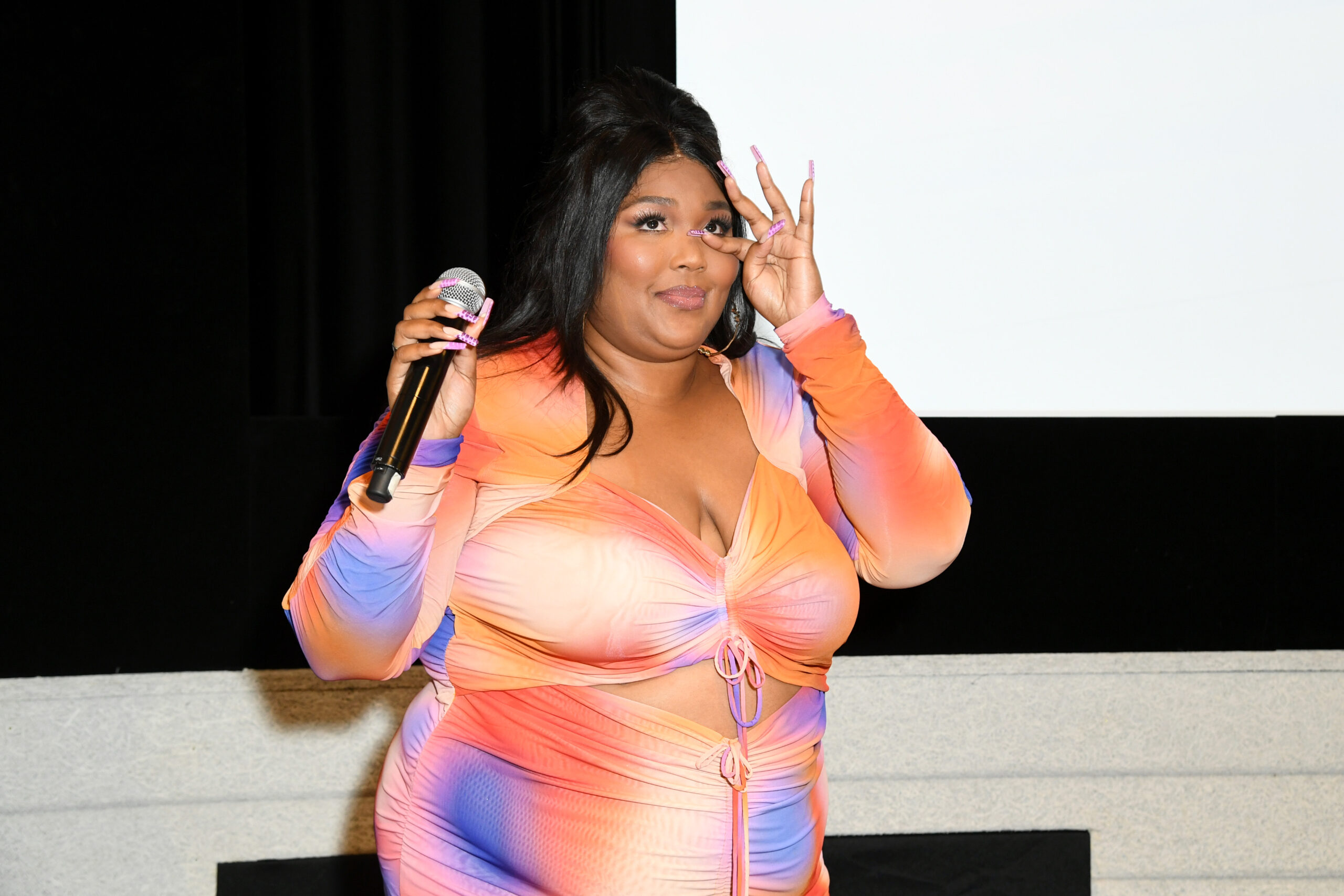Unless you’ve been living under a rock, you know all about pop singer Lizzo. From hits like “Truth Hurts” and “Good As Hell” to being the first Black woman to pull double duty as host and musical guest on Saturday Night Live, Lizzo has become a household name. Though she is beloved by music fans far and wide, her very existence in an industry that often devalues plus size Black women is nothing short of revolutionary. Her self-love and refusal to hide her body has made her a pioneer of the body positive generation. And she has no qualms about holding a middle finger up to their haters. The best thing is that she doesn’t just do it for herself, but for everyone who is told their bodies aren’t good enough for the rest of the world.
And with her latest venture, Prime Video’s “Watch Out For The Big Grrrls,” she is once again telling body-shamers exactly where they can kiss.
The series follows 10 dancers who hope to join Lizzo’s tour as fellow Big Girls. In the show, the Grammy nominated singer delivers affirmation after affirmation for the unseen, misunderstood and undervalued. She connects with the women through her own struggles and lessons. She pushes them to embrace their bodies through a nude photoshoot, African-inspired dance classes and opportunities to share their stories with one another.
What, on its face, seems like another reality TV competition becomes something more by episode 3. You start to see layers of defense, protection and survival melt off the ladies as they see one another as community more than competitors. They support one another through choreography changes to prevent injuries—-something that is not always accounted for in the dance world. They even offer one another extra help when rehearsals end. There is no lack of camaraderie between the women, The way they show up fully as themselves is, for lack of a better term, awe-inspiring.
So, why did I find myself being extremely uncomfortable and, at times, judgmental of the women?
Somewhere in my viewing, I had to face the ways in which I am indoctrinated to view these bodies. Because they are different from my own, different, even, from each other’s, I subconsciously viewed them as less than worthy. I saw these figures as something that should not be on display. Though Lizzo made me want to watch the show, I still felt shame about seeing them exist. Feeling shame around their lack of shame. Rolling my eyes about their need to have things altered to support their bodies and the weight they beautifully carry. Cringing at their lack of obsession over healthy food choices or clothes that cover soft areas.
I, a woman who would consider herself an ally to all, came face to face with my fatphobia. And to really dig in, I was coming up against my own feelings of unworthiness based on what my body is or isn’t. See, at the very core of any feelings of superiority over another is the fear that we will be seen as less than, ourselves. Or, perhaps, that our flaws may be put on display and keep us from being loved, accepted, hired, desired, etc…
We need someone else to exist in the margins so that we don’t have to.
As women, we are constantly being feed images of what we should look like. Bigger this, smaller that. Wider here, not too wide there. Everything is about fixing, changing, shifting…into something other than ourselves. We are constantly fed the idea that we and our bodies are at war, never in harmony. In fact, it is almost shocking to hear a woman say she is pleased with what she sees in the mirror without adding a caveat of what she would change if given the resources. Hating ourselves, nitpicking at our “flaws” is almost a community activity. One that brings us closers to others.
We obsess over which pictures to post, turn to filters and editing apps to smooth out anything that makes us appear too…real. So much so that we are uncomfortable when women refuse to be bound to these fallacies. When no one is counting calories or obsessing over waist trainers or killing themselves in the gym, we wonder who she thinks she is. But if “Watch Out For The Big Grrrls” taught me nothing else, it taught me what freedom looks like. It taught me that there are people in the world who are ready to accept me for me. Hell, it taught me that I can accept myself. With no add-ons or subtractions. The world may have to alter itself to fit me but I do not have to alter myself to be in this world. And that? That’s a big ass deal.
